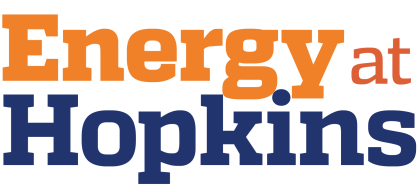ROSEI Seminar: Dan Nocera

Description
Dan Nocera, a professor of energy at Harvard University, will give a talk titled "Distributed Fischer-Tropsch and Haber-Bosch from Air, Water, and the Sunlight" for the Ralph O'Connor Sustainable Energy Institute (ROSEI).
Abstract:
Living healthy on a dying planet—we are a world out of balance. Relying on science to improve the health of the individual with the design of new drugs and therapies, we are neglectful of the health of our humanity at a global level. Disease indeed does compromise humankind's very existence, but it is not disease inflicted on humans; rather it is the disease inflicted by humans on our planet. Climate change continues to outpace the implementation of renewable energy at an alarming rate. With an understanding that the underserved populations of our global society, without large energy infrastructures, will largely drive climate change by mid-century, our research is particularly focused on developing the science that underpins the implementation of distributed energy systems and processes for the developing world.
Hybrid inorganic and biological constructs have been created to use sunlight, air and water as the only starting materials to accomplish carbon and nitrogen fixation, enabling the establishment of distributed and renewable Fischer-Tropsch and Haber Bosch cycles. The carbon and nitrogen fixation cycles begin with the Artificial Leaf, which was invented to accomplish the solar fuels process of natural photosynthesis—the splitting of natural water to hydrogen and oxygen using sunlight—under ambient conditions. The hydrogen from the Artificial Leaf may be interfaced with metabolically engineered organisms to power the Bionic Leaf-C and Bionic Leaf-N to convert carbon dioxide and nitrogen from air into liquid fuels and ammonia, respectively. The Bionic Leaf-C performs artificial photosynthesis to form biomass or liquid fuels at solar-to-biomass energy efficiencies that exceed the best growing crops by a factor of 10 and exceed natural biomass-to-liquid fuels efficiencies by a factor of >100. The Bionic-Leaf N is a living biofertilizer that can replace chemical fertilizer; field trials have demonstrated massive carbon dioxide budget savings (e.g., for a 400-acre farm, 154 metric tons of CO2 is mitigated) while enhancing crop yields without the run-off that is responsible for harmful algal blooms.
Where are these innovations useful? The use of the simple inputs of only sunlight, air and water to produce fuel (carbon neutral) and food and vitamins (carbon negative) within a sustainable cycle for the biogenic elements of C, N, and P is particularly useful to the poor of the world, where large infrastructures for fuel and food production are not tenable.
Who can attend?
- Faculty
- Students







